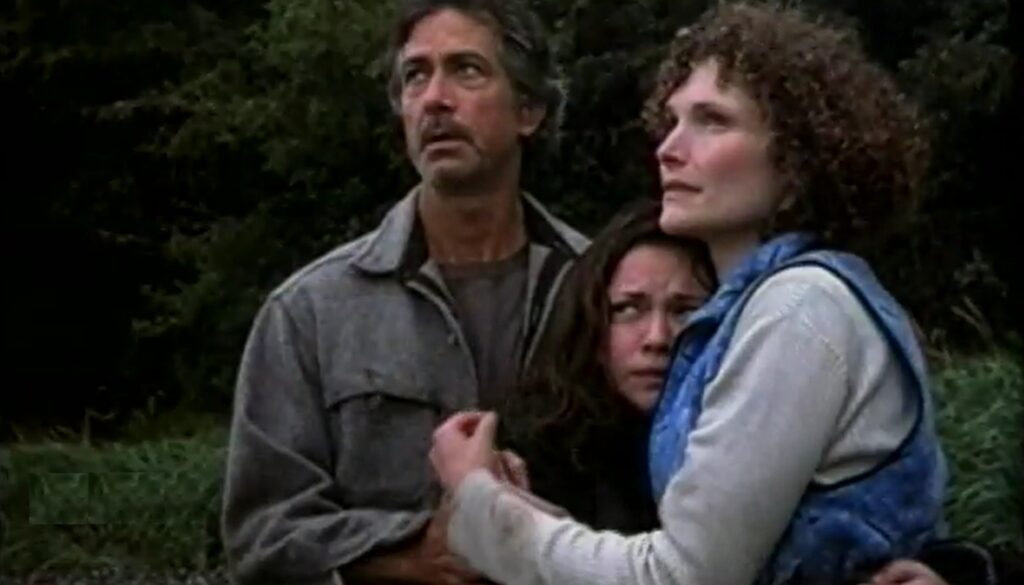
Today, I explain why authorial intent, while not useless, is ultimately not the final word on any critical reading topic.
This is the Cronin Theory of Pop Culture, a collection of positions I’ve collected over the years that I think hold pretty true.
Almost exactly 24 years ago, I really wanted to see John Sayles’ then-new movie, Limbo. It was only playing in a single theater in all of New York City, and it was going out of THAT theater after the weekend, so Sunday, July 18, 1999 was the last day to watch it. I saw it with my dad. We were considering going to see a Yankee game, instead, as it was Yogi Berra Day. However, like I said, the movie was going out of theaters the next day, so we made the choice to see the movie (well, I mostly made the choice. My dad was open for whichever). The movie was quite good, but, well, when we got home, my brother let me know that David Cone had pitched a perfect game for the Yankees while we were at the movies. I’m sure you can imagine the sad trombone sounds in your head.
Anyhow, I’m going to spoil that 24-year-old movie for you. A man, Joe Gastineau (David Strathairn), a woman, Donna De Angelo (Mary Elizabeth Mastrantonio) and her teenage daughter, Noelle (Vanessa Martinez) are hiding out on a deserted island in the middle of the Alaskan wilderness. Some drug dealers are looking for them to kill them, because they all witnessed the murder of an associate of the drug dealers, who was Joe’s brother. After a week and a half living on their own in an abandoned cabin in the woods, the local bush pilot, “Smilin Jack” Johannson (Kris Kristofferson) arrives on the island. The group decides to take their chances with him. They come out and meet him. He appears sympathetic to their plight, despite the fact that he has an old grudge against Joe (and he is lying about the fact that his radio is broken – it was removed from his plane). He admits that three men hired him to find them, but he tells them that he is now going to fly back and return with help (his plane is too low on fuel to fly them out then and there).
It then rains heavily for the next few days, but finally, things clear up, and a larger sea plane is heading towards the island. They look to the sky and the movie ends without us knowing whether they were saved or if the drug dealers were being brought there to kill them. The audience is now in limbo, as well. Clever (if a bit annoying).
Okay, so let’s say John Sayles says tomorrow, “They were saved,” or even more specifically, “When I wrote and directed the movie, it was my intent that they were saved at the end.”
At the end of the day, that’s very interesting information, but ultimately, it doesn’t matter beyond being interesting information.
Authorial intent is very interesting information to have. I’ve done many legends over the years based on authorial intent. In addition, I have no problem with someone taking authorial intent into account when analyzing a book or a film or a TV show or a comic book.
However, it’s not the end all/be all. You can make a compelling analyzation of a work and have it be at odds with the author’s intent, and it doesn’t make you “wrong” because the author did not intend it. It just matters whether your analysis is supportable. For instance, if you say, “The sea plane at the end of Limbo was carrying alien invaders,” that’s not a reasonable interpretation of the work. Similarly, if John Sayles says, “My intent was that the plane would be filled with alien invaders,” that doesn’t make that reasonable, either.
Authors could intend a work to be read one way, but if the work isn’t actually written that way, then the author saying that they INTENDED it to be read that way isn’t enough. The work has to actually be written to make the intended interpretation work. Not to mention the fact that authors can often not even understand their subconscious influences (or just be lying, of course). And, again, if the critic’s interpretation is supportable, it’s supportable.
A famous example of how authorial intent is not the last word on things would be how Ray Bradbury used to argue vociferously that Fahrenheit 451 was NOT about the dangers of censorship, but rather about the dangers of mass media and people becoming culturally illiterate due to their consumption of mass media entertainment. Well, let me tell you, not only is Fahrenheit 451 definitely about the dangers of censorship (in at least part), but Bradbury himself used to admit it until he began to be irritated at people reading it that way, and then started complaining about people reading the book “Wrong.” Years later, before he passed away, he started to be open to the original interpretation again (although his statements on the topic were pretty disheartening, to be honest, as it was basically complaining about ‘cancel culture’ decades ago).
Here, we have one of the most beloved authors of one of the most acclaimed books of all time basically saying that the most popular reading of his book is “wrong,” but then changing his mind multiple times on the topic. Clearly, authorial intent is not the end all/be all of critical interpretation. You shouldn’t throw it in the trash, but it’s not the last word.
So as far as I’m concerned, authorial intent is nice, but I’m never going to say, “Your interpretation is wrong because the writer of the story says so.”










While I remember the days when you had to see a movie in theater because you might never it again they were long over by 1999.